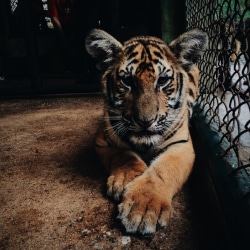Wildlife Trade and Income Inequality

Over 420 million wild animals were traded in 226 nations over 2 decades (between 1998 and 2018) according to new figures. The researchers said that income inequality is a driving factor behind the trade. They have suggested rich countries should pay the poor countries to conserve nature rather than exploit it.
International trade in animals and plants is one of the greatest threats to all species. The latest research has shown unsurprisingly that the movement is mostly from low income to rich developed countries.
Socioeconomic incentives required
The University of Hong Kong lead the research and has suggested that the countries supplying the most wildlife products should be given financial incentives to reduce trade over a set time frame. The funding should come from wealthy countries as they are the recipients of the trade and therefore play a huge role.
The researchers believe the coronavirus pandemic will have led to a decline in wildlife trade and serves as a point from which we should not go back. We should take advantage of public awareness of the wildlife trade and consuming wildlife products so as to reduce demand. As an example they cited the need to make China’s temporary halt to their domestic wildlife trade permanent.
Massive Scale
The latest study was published in Science Advances and found that the global trade network was extensive between countries with large wealth divides. Indonesia, Jamaica, and Honduras are among the largest wildlife exporters for products according to the report. With the US being the biggest importer, followed by France and Italy a distant second and third.
Trade in animals and plants is regulated by Cites (the Convention on International Trade in Endangered Species of Wild Fauna and Flora) which aims to lower the demand for threatened species therefore allowing recovery. However, Cites doesn’t wield much power within each member country so has restricted ability to apply pressure. Therefore each member nation must reduce demand and enforce trade restrictions in their country.



